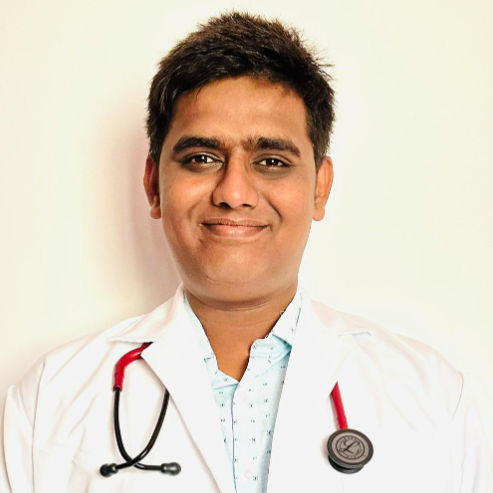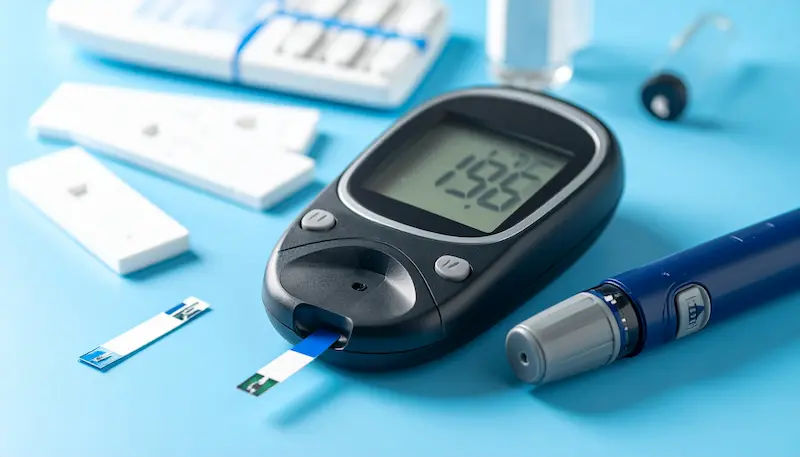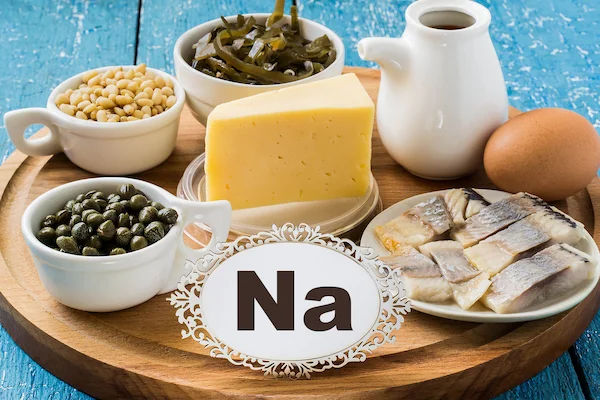Guide to Managing Hypertension And Kidney Disease
Learn how to manage hypertension and protect your kidneys with this comprehensive guide. Discover lifestyle tips, medications, and monitoring strategies for kidney health.


Introduction
High blood pressure is often called the "silent killer" because it can damage your body for years without any obvious symptoms. One of its most critical targets is your kidneys. In fact, hypertension is the second leading cause of kidney disease, creating a dangerous cycle where each condition worsens the other. But here's the empowering truth: this cycle can be broken. Effective management is not only possible; it's the key to preserving your kidney function and overall health. This comprehensive guide will walk you through the essential connection between hypertension and kidney disease, the signs to watch for, and the actionable steps—from medication to daily habits—you can take to protect your kidneys and lead a full, healthy life.
The Unbreakable Link: How Hypertension and Kidneys Affect Each Other
Your kidneys and blood pressure share an intimate, two-way relationship. Understanding this connection is the first step toward effective management. It’s not just that high blood pressure causes kidney problems; damaged kidneys can also make blood pressure much harder to control.
The Kidneys' Role as Master Blood Pressure Regulators
Think of your kidneys as sophisticated filtration centers. They process about 150 quarts of blood daily to remove waste and extra fluid, which becomes urine. To do this, they are packed with tiny, delicate blood vessels called glomeruli. Crucially, the kidneys also produce a hormone called renin, which acts as a master switch for your body's blood pressure regulation system. When blood pressure drops, they release renin to tighten blood vessels and raise pressure. When it's high, they are supposed to work to excrete more sodium and water to lower it. When your blood pressure control is optimal, this system works in perfect harmony.
How High Blood Pressure Damages the Kidneys' Filters
When hypertension is persistent, it forces blood through these delicate kidney vessels with excessive force. Imagine using a high-pressure hose on a fine sieve—eventually, the sieve will tear. Similarly, sustained high pressure damages and scars the glomeruli. Once damaged, these filters become less effective. They start letting essential protein leak into the urine (a condition called albuminuria) and fail to remove waste products efficiently. As more filters are destroyed, kidney function declines, leading to chronic kidney disease (CKD). This damage is a primary reason why managing high blood pressure is non-negotiable for kidney health.
Consult a Cardiologist or Nephrologist for the best advice
Recognising the Signs: Symptoms of Kidney Disease from Hypertension
Hypertensive kidney disease is often silent in its early stages. The symptoms typically appear only after significant damage has occurred, which is why regular check-ups are vital.
Early Warning Signs You Might Miss
Early signs are subtle and easily attributed to other issues. They include:
- Fatigue and difficulty concentrating: Caused by a buildup of toxins and anaemia, a common complication of CKD.
- Trouble sleeping: Waste buildup can interfere with sleep cycles.
- Increased urination, especially at night: As the kidneys' concentrating ability fails.
- Puffiness around the eyes and swollen feet/ankles: Caused by the kidneys' inability to remove excess fluid, a sign of fluid retention.
Later-Stage Symptoms Requiring Immediate Attention
As kidney function worsens, symptoms become more pronounced and serious, such as:
- Persistent nausea and vomiting.
- Loss of appetite and a metallic taste in the mouth.
- Shortness of breath: Due to fluid buildup in the lungs.
- Severe itching: From mineral and bone disorders related to CKD.
- Chest pain and uncontrolled high blood pressure.
If you experience any of these later-stage symptoms, it is crucial to seek medical advice promptly. If symptoms like severe swelling or shortness of breath occur, consult a doctor online with Apollo24|7 for immediate guidance.
Getting a Clear Picture: Diagnosis and Staging
If you have hypertension, your doctor will routinely screen for kidney damage. Early diagnosis is key to preventing progression to renal failure.
Key Diagnostic Tests: Blood, Urine, and Imaging
Two simple tests are fundamental. They are:
- Blood Test for eGFR: The estimated glomerular filtration rate (eGFR) measures how well your kidneys are filtering waste. A lower eGFR indicates reduced kidney function.
- Urine Test for Albumin: This test checks for albumin (a type of protein) in the urine. Healthy kidneys keep protein in the blood, so its presence (albuminuria) is a key marker of damage.
Your doctor may also order an ultrasound to check the kidneys' size and structure. Apollo24|7 offers convenient home collection for tests like eGFR and urine albumin, making monitoring easier.
Understanding Your eGFR and Urine Albumin Levels
Chronic Kidney Disease is staged from 1 to 5 based on your eGFR. They are:
- Stage 1-2 (eGFR >60): Kidney damage with normal or mildly reduced function.
- Stage 3 (eGFR 30-59): Moderately reduced function.
- Stage 4 (eGFR 15-29): Severely reduced function.
- Stage 5 (eGFR <15): Kidney failure, often requiring dialysis or transplant.
Your treatment plan will be tailored to your specific stage, emphasising that can kidney damage from hypertension be reversed is most possible when caught early (Stages 1-2).
The Cornerstone of Care: Your Hypertension and Kidney Disease Treatment Plan
Treatment focuses on aggressively controlling blood pressure to protect the remaining kidney function. This almost always involves medication and lifestyle changes.
First-Line Medications: ACE Inhibitors and ARBs
For patients with hypertension and kidney disease, a class of drugs called ACE inhibitors (e.g., lisinopril) or ARBs (e.g., losartan) are typically the best blood pressure medication for kidney disease. They not only lower blood pressure but also specifically reduce pressure within the kidneys' filters and slow the progression of protein leakage, providing direct renal protection.
Additional Medications for Comprehensive Control
Most people need a combination of medications to reach their blood pressure goal (often <130/80 mmHg for those with CKD).
The Crucial Role of Diuretics
Often called "water pills," diuretics help the kidneys remove excess sodium and water from the body, reducing blood volume and pressure. They are especially useful if you have fluid retention.
Managing Other Risk Factors: Cholesterol and Blood Sugar
Your doctor may also prescribe statins to manage cholesterol and medications to control blood sugar if you have diabetes, as both are major risk factors for cardiovascular disease in CKD patients.
Lifestyle as Medicine: Daily Habits for Kidney and Heart Health
Medication is essential, but lifestyle changes empower you to take control. They can improve the effectiveness of your medications and slow disease progression.
The DASH Diet: Your Nutritional Blueprint
The dietary approaches to stop hypertension (DASH) diet is highly recommended. It’s rich in fruits, vegetables, whole grains, and low-fat dairy, and low in sodium, saturated fat, and added sugars. Key tips for a diet for high blood pressure and kidney disease include:
- Reduce Sodium: Aim for less than 2,300 mg per day (ideally 1,500 mg). Cook at home, avoid processed foods, and use herbs instead of salt.
- Monitor Protein and Potassium: In later stages of CKD, your doctor may advise moderating protein and potassium intake. Always follow personalised medical advice.
Moving Your Body: Safe and Effective Exercise
Regular physical activity (e.g., 30 minutes of brisk walking most days) helps lower blood pressure, manage weight, and reduce stress. Start slowly and consult your doctor before beginning a new regimen.
Stress Management and Quality Sleep
Chronic stress can elevate blood pressure. Techniques like meditation, deep breathing, and ensuring 7-8 hours of quality sleep per night are powerful tools for your cardiovascular risk management.
Monitoring at Home: The Power of Tracking Your Health
Being proactive in your care is crucial for long-term success.
How to Accurately Monitor Your Blood Pressure at Home
Use a validated upper-arm cuff monitor. Sit quietly for 5 minutes before checking, with your feet flat on the floor and your arm supported at heart level. Keep a log of your readings to share with your doctor.
Keeping a Health Journal: What to Track
Beyond blood pressure, note your weight (sudden increases can signal fluid retention), medication times, diet, and energy levels. This journal provides invaluable data for your healthcare team. If your condition does not improve after trying these methods, book a physical visit to a doctor with Apollo24|7 for a comprehensive review.
Living Well: Long-Term Outlook and Prevention of Progression
A diagnosis of hypertensive kidney disease is serious, but it is not a hopeless one. With strict adherence to your treatment plan, you can significantly slow or even halt the progression of the disease. The goal is to preserve your kidney function for as long as possible, delaying or avoiding the need for dialysis. Regular follow-ups with your nephrologist (kidney specialist) and a commitment to a healthy lifestyle are your strongest allies in managing this condition effectively.
Conclusion
Managing hypertension to protect your kidneys is a lifelong journey that requires commitment and partnership with your healthcare providers. By understanding the critical connection between these two conditions, recognising the signs, adhering to your medication plan, and embracing heart-healthy lifestyle changes, you hold the power to influence your health outcomes significantly. Remember, every positive step you take—whether it's choosing a healthy meal, taking a walk, or correctly monitoring your blood pressure—contributes to preserving your kidney function and enhancing your quality of life. Start today by having an open conversation with your doctor about your numbers and your plan. Your kidneys will thank you for years to come.
Consult a Cardiologist or Nephrologist for the best advice
Consult a Cardiologist or Nephrologist for the best advice

Dr. Dayanashre N
General Physician
3 Years • MBBS
Bengaluru
PRESTIGE SHANTHINIKETAN - SOCIETY CLINIC, Bengaluru

Dr. Bhethala Sharan Prakash
General Physician/ Internal Medicine Specialist
5 Years • MBBS MD
Bengaluru
PRESTIGE SHANTHINIKETAN - SOCIETY CLINIC, Bengaluru

Dr Ranga Manikandan
Cardiologist
6 Years • MBBS., MD., DM.DNB - Cardiology
Madurai
Apollo Speciality Hospitals KK Nagar, Madurai

Dr. Abhishek Rathore
Cardiologist and Electrophysiologist
7 Years • MBBS, MD (Gen. Medicine), DM ( Cardiology ), Post-Doctoral Fellowship in Cardiac Electrophysiology.
Indore
Apollo Hospitals Vijay Nagar, Indore

Dr. Sushith C
General Physician
2 Years • MBBS
Bengaluru
PRESTIGE SHANTHINIKETAN - SOCIETY CLINIC, Bengaluru
Consult a Cardiologist or Nephrologist for the best advice

Dr. Dayanashre N
General Physician
3 Years • MBBS
Bengaluru
PRESTIGE SHANTHINIKETAN - SOCIETY CLINIC, Bengaluru

Dr. Bhethala Sharan Prakash
General Physician/ Internal Medicine Specialist
5 Years • MBBS MD
Bengaluru
PRESTIGE SHANTHINIKETAN - SOCIETY CLINIC, Bengaluru

Dr Ranga Manikandan
Cardiologist
6 Years • MBBS., MD., DM.DNB - Cardiology
Madurai
Apollo Speciality Hospitals KK Nagar, Madurai

Dr. Abhishek Rathore
Cardiologist and Electrophysiologist
7 Years • MBBS, MD (Gen. Medicine), DM ( Cardiology ), Post-Doctoral Fellowship in Cardiac Electrophysiology.
Indore
Apollo Hospitals Vijay Nagar, Indore

Dr. Sushith C
General Physician
2 Years • MBBS
Bengaluru
PRESTIGE SHANTHINIKETAN - SOCIETY CLINIC, Bengaluru
More articles from High Blood Pressure
Frequently Asked Questions
1. Can kidney damage from hypertension be reversed?
In the very early stages (Stage 1-2 CKD), when there is minimal scarring, aggressive blood pressure control can sometimes reverse mild damage or, more commonly, prevent further progression. In later stages, the focus shifts to slowing the decline and preserving remaining function.
2. What is the life expectancy with hypertensive kidney disease?
Life expectancy varies greatly and depends on factors like age, the stage of kidney disease at diagnosis, how well blood pressure is controlled, and the presence of other conditions like diabetes. With modern treatments and good management, many people live long, full lives.
3. What are the best foods to eat for high blood pressure and kidney disease?
Focus on fresh fruits and vegetables (being mindful of potassium in later stages), whole grains, lean proteins like chicken and fish, and low-fat dairy. The cornerstone is a low-sodium diet, which means avoiding processed foods, canned soups, and fast food.
4. What is the target blood pressure for someone with kidney disease?
For most individuals with chronic kidney disease, the goal is to maintain a blood pressure below 130/80 mmHg. However, your doctor will set a personalised target based on your specific health profile.
5. How often should I get my kidney function tested if I have high blood pressure?
If your blood pressure is well-controlled, your doctor will likely recommend tests like eGFR and urine albumin at least once a year. If your blood pressure is unstable or you have signs of kidney damage, testing may be needed more frequently.




